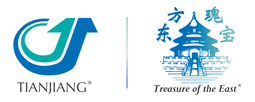Are Your Patients Getting Enough Sleep? Suan Zao Ren Tang: The Natural Remedy for Insomnia
What is the likelihood that a patient suffering from insomnia will get a prescription for sleeping pills from their doctor?
Very likely.
In today’s conventional medical model, sleeping pills are still the primary choice of treatment for insomnia and related sleep disorders. However, this option carries the risk of dependency as well as long-term resistance to these drugs.
It stands to reason then, that more people are leaning toward natural remedies to help them sleep better.
What About Melatonin?
Melatonin has been a popular choice for alleviating insomnia in recent years. There are a few downsides to the exogenous hormonal supplement, however. Lack of regulation is one. Another is the common pitfall of self-medicating: treating the wrong issue!
For many patients, a lack of the endogenous hormone may not be the underlying health condition. However, western medical experts seem to agree that melatonin appears to be a safe short-term solution to insomnia.
A Long-Term Solution to Insomnia?
As a health care practitioner, you are in the ideal position to recommend a safe, effective and lasting alternative to sleeping pills and melatonin: TCM! Chinese medical texts suggest that acupuncture and Chinese herbs may help improve sleep naturally.
However, modern studies are best suited to helping patients understand the efficacy of acupuncture and Chinese herbs. Here are just a few sources worth sharing:
- Impact of Acupuncture on Chronic Insomnia (Science Direct)
- Remarkable improvement was determined in polysomnographic readings after treatment.
- Suanzaoren Formulae for Insomnia: Updated Clinical Evidence and Possible Mechanisms (Frontiers in Pharmacology)
- Suan zao ren decoction therapy was effective and well tolerated for insomnia through sedative and hypnotic actions primarily mediated by the GABAergic and serotonergic system. Thus, Suan Zao Ren Formula could be an alternative treatment for insomnia in clinical practice.
- A Review of Botanical and Traditional Uses and Phytochemical, Pharmacological, Pharmacokinetic, and Toxicological Characteristics of Ziziphi Spinosae Semen (Suan Zao Ren) (Evid Based Complement Alternat Med)
- Researchers show that suan zao ren has a wide range of pharmacological activities on the central nervous and cardiovascular systems including sedation and hypnosis, anti-inflammation, antioxidation and antiaging.
Meet the Real Suan Zao Ren
If you practice Chinese herbal medicine, you are among a rare group of professionals who probably enjoy the history of individual herbs. So, let’s dig a little deeper into suan zao ren!

Suan zao ren, or sour jujube seed, was first recognized in the "Shen Nong's Materia Medica" of the Han Dynasty more than 2,200 years ago and was listed as the top grade of Chinese herbal medicine ingredients. It is a sweet and sour Chinese herb that is truly “food as medicine” - lending itself to cookery and as a documented natural sleep aid. Prominent Chinese physicians from ancient times to today identify suan zao ren as their first choice for addressing a whole range of sleep disorders. Chinese medical texts teach us that suan zao ren has the effect of nourishing blood and calming nerves, regulating qi, benefiting the heart and liver. The suan zao ren formula was recorded in the first herbal prescription for insomnia thousands of years ago and is still used today.
In Western botany, suan zao ren has the latin name-Ziziphus Spinosae Semen and consists of the core kernels of wild jujube. Mature fruits are harvested in late autumn and early winter where the pulp and core shells are removed, the seeds are collected, and then dried.
Nourish, Don’t Medicate!
One of the hallmarks of Chinese medicine is its ability to treat the whole person. This fundamental approach to healthcare gives us a unique perspective on addressing health complaints such as insomnia.
A “nourish, don’t medicate” approach is at the heart (no pun intended!) of what TCM offers as a solution to insomnia. Prescribing the thousand-year-old number-one formula, suan zao ren tang, demonstrates this practice of care perfectly.
With conservative estimates showing 10-30% of adults live with chronic insomnia (and much greater numbers suffering from various types of sleep disturbances including sleep apnea, daytime drowsiness and short or interrupted sleep cycles), sharing these herbs truly is caring. So please do share this article with your patients and colleagues to help spread the word about the natural supportive benefits of Chinese herbal medicine – for insomnia and so much more.



















